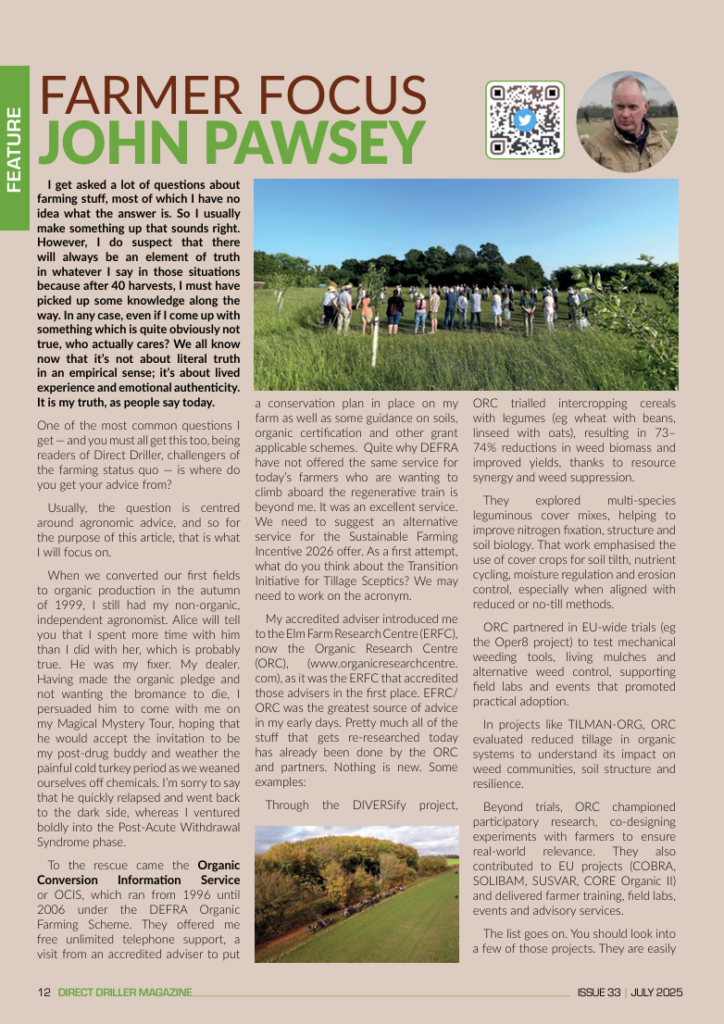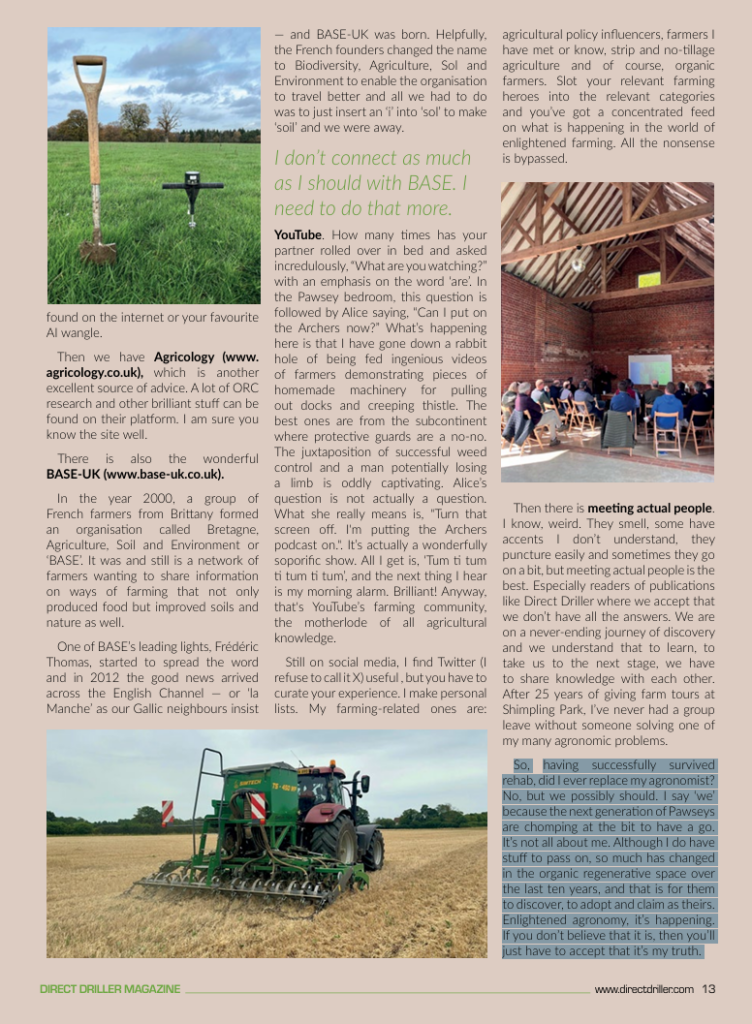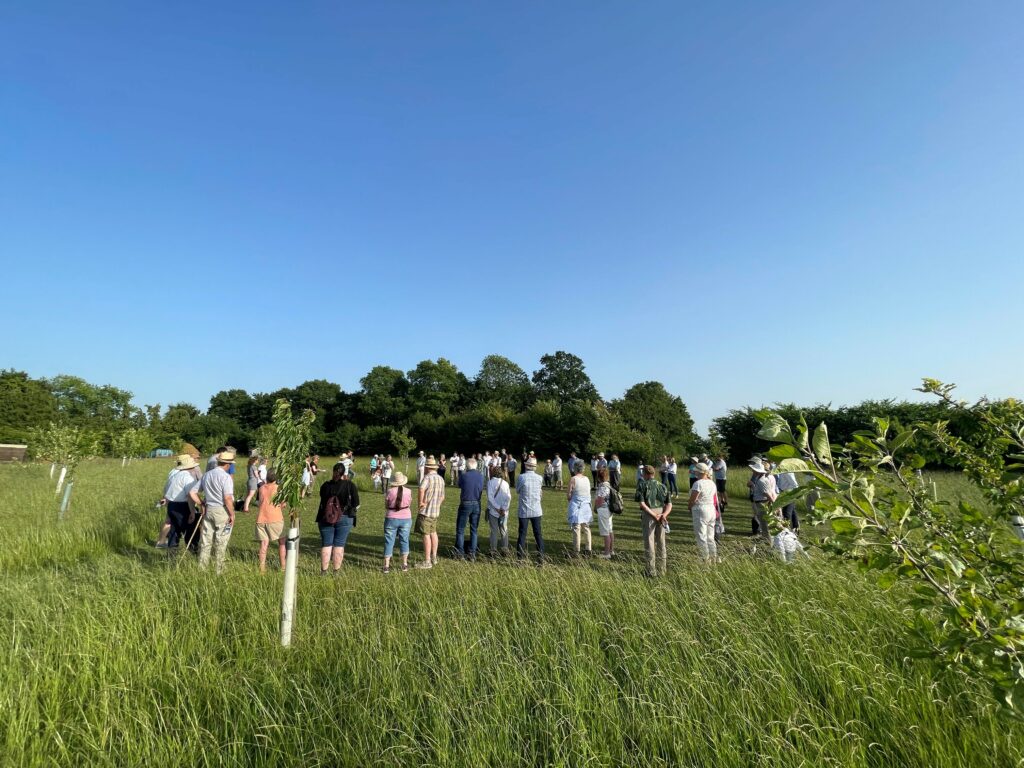June 2025
I get asked a lot of questions about farming stuff, most of which I have no idea what the answer is. So I usually make something up that sounds right. However, I do suspect that there will always be an element of truth in whatever I say in those situations because after 40 harvests, I must have picked up some knowledge along the way. In any case, even if I come up with something which is quite obviously not true, who actually cares? We all know now that it’s not about literal truth in an empirical sense; it’s about lived experience and emotional authenticity. It is my truth, as people say today.
One of the most common questions I get — and you must all get this too, being readers of Direct Driller, challengers of the farming status quo — is where do you get your advice from? Usually, the question is centred around agronomic advice, and so for the purpose of this article, that is what I will focus on.
When we converted our first fields to organic production in the autumn of 1999, I still had my non-organic, independent agronomist. Alice will tell you that I spent more time with him than I did with her, which is probably true. He was my fixer. My dealer. Having made the organic pledge and not wanting the bromance to die, I persuaded him to come with me on my Magical Mystery Tour, hoping that he would accept the invitation to be my post-drug buddy and weather the painful cold turkey period as we weaned ourselves off chemicals. I’m sorry to say that he quickly relapsed and went back to the dark side, whereas I ventured boldly into the Post-Acute Withdrawal Syndrome phase.
To the rescue came the Organic Conversion Information Service or OCIS, which ran from 1996 until 2006 under the DEFRA Organic Farming Scheme. They offered me free unlimited telephone support, a visit from an accredited adviser to put a conservation plan in place on my farm as well as some guidance on soils, organic certification and other grant applicable schemes. Quite why DEFRA have not offered the same service for today’s farmers who are wanting to climb aboard the regenerative train is beyond me. It was an excellent service. We need to suggest an alternative service for the Sustainable Farming Incentive 2026 offer. As a first attempt, what do you think about the Transition Initiative for Tillage Sceptics? We may need to work on the acronym.
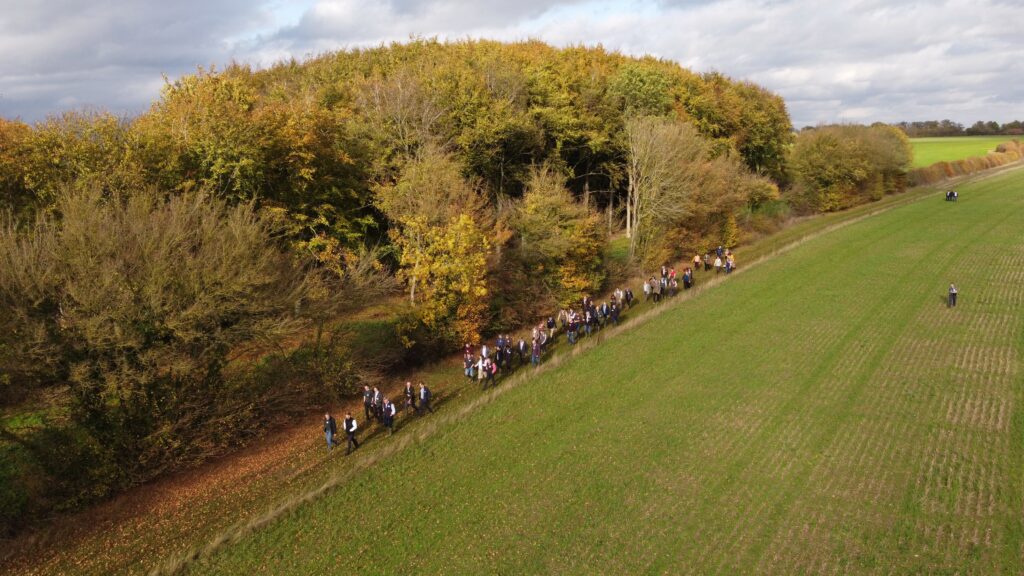
My accredited adviser introduced me to the Elm Farm Research Centre (ERFC), now the Organic Research Centre (ORC), (www.organicresearchcentre. com), as it was the ERFC that accredited those advisers in the first place. EFRC/ ORC was the greatest source of advice in my early days. Pretty much all of the stuff that gets re-researched today has already been done by the ORC and partners. Nothing is new. Some examples:
- Through the DIVERSify project, ORC trialled intercropping cereals with legumes (eg wheat with beans, linseed with oats), resulting in 7374% reductions in weed biomass and improved yields, thanks to resource synergy and weed suppression.
- They explored multi-species leguminous cover mixes, helping to improve nitrogen fixation, structure and soil biology. That work emphasised the use of cover crops for soil tilth, nutrient cycling, moisture regulation and erosion control, especially when aligned with reduced or no-till methods.
- ORC partnered in EU-wide trials (eg the Oper8 project) to test mechanical weeding tools, living mulches and alternative weed control, supporting f ield labs and events that promoted practical adoption. In projects like TILMAN-ORG, ORC evaluated reduced tillage in organic systems to understand its impact on weed communities, soil structure and resilience.
- Beyond trials, ORC championed participatory research, co-designing experiments with farmers to ensure real-world relevance. They also contributed to EU projects (COBRA, SOLIBAM, SUSVAR, CORE Organic II) and delivered farmer training, field labs, events and advisory services.
The list goes on. You should look into a few of those projects. They are easily found on the internet or your favourite AI wangle.
Then we have Agricology (www. agricology.co.uk), which is another excellent source of advice. A lot of ORC research and other brilliant stuff can be found on their platform. I am sure you know the site well.
There is also the wonderful BASE-UK (www.base-uk.co.uk).
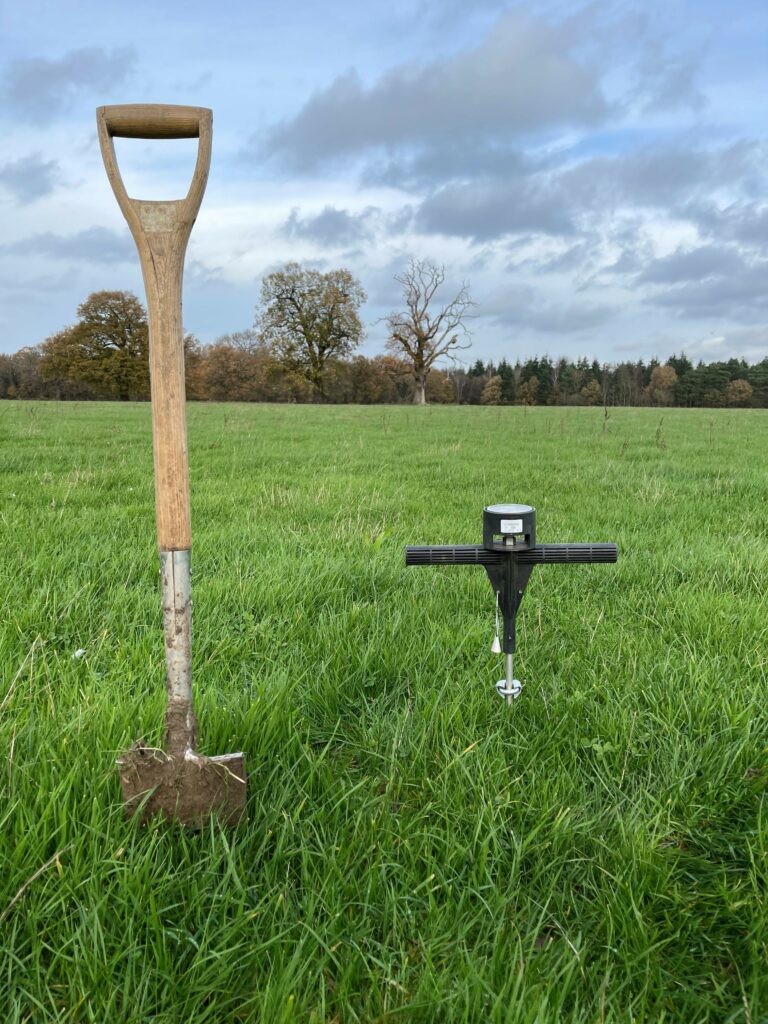
In the year 2000, a group of French farmers from Brittany formed an organisation called Bretagne, Agriculture, Soil and Environment or ‘BASE’. It was and still is a network of farmers wanting to share information on ways of farming that not only produced food but improved soils and nature as well.
One of BASE’s leading lights, Frédéric Thomas, started to spread the word and in 2012 the good news arrived across the English Channel — or ‘la Manche’ as our Gallic neighbours insist — and BASE-UK was born. Helpfully, the French founders changed the name to Biodiversity, Agriculture, Sol and Environment to enable the organisation to travel better and all we had to do was to just insert an ‘i’ into ‘sol’ to make ‘soil’ and we were away. I don’t connect as much as I should with BASE. I need to do that more.
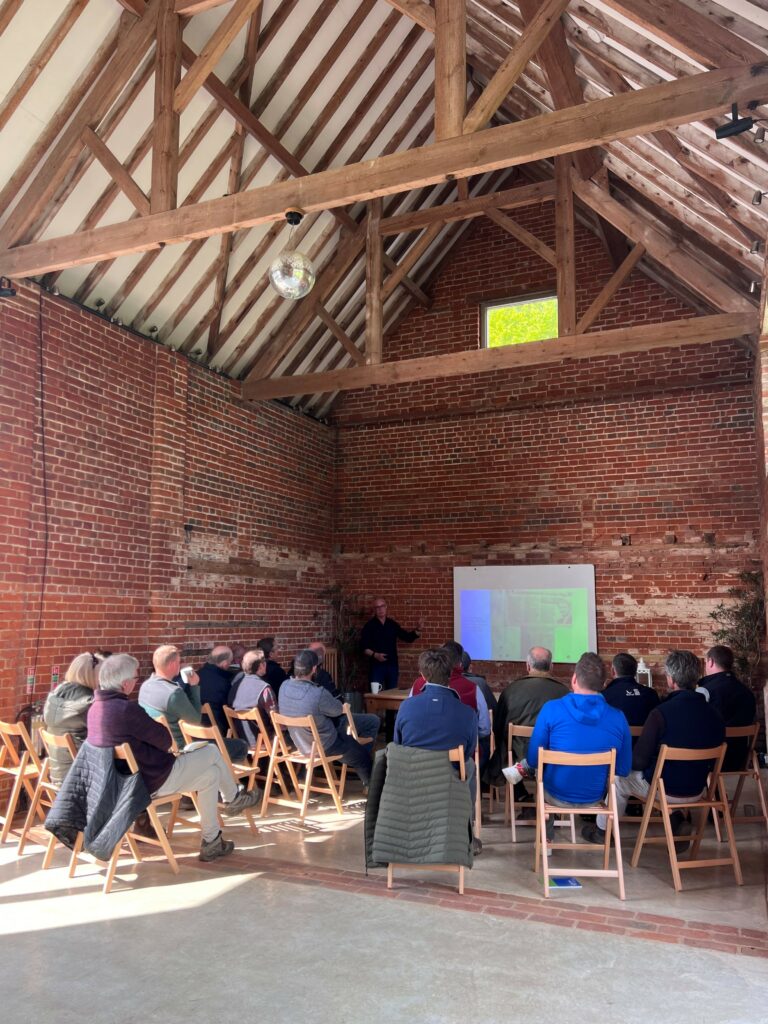
YouTube. How many times has your partner rolled over in bed and asked incredulously, “What are you watching?” with an emphasis on the word ‘are’. In the Pawsey bedroom, this question is followed by Alice saying, “Can I put on the Archers now?” What’s happening here is that I have gone down a rabbit hole of being fed ingenious videos of farmers demonstrating pieces of homemade machinery for pulling out docks and creeping thistle. The best ones are from the subcontinent where protective guards are a no-no. The juxtaposition of successful weed control and a man potentially losing a limb is oddly captivating. Alice’s question is not actually a question. What she really means is, “Turn that screen off. I’m putting the Archers podcast on.”. It’s actually a wonderfully soporific show. All I get is, ‘Tum ti tum t i tum ti tum’, and the next thing I hear is my morning alarm. Brilliant! Anyway, that’s YouTube’s farming community, the motherlode of all agricultural knowledge.
Still on social media, I find Twitter (I refuse to call it X) useful , but you have to curate your experience. I make personal lists. My farming-related ones are: agricultural policy influencers, farmers I have met or know, strip and no-tillage agriculture and of course, organic farmers. Slot your relevant farming heroes into the relevant categories and you’ve got a concentrated feed on what is happening in the world of enlightened farming. All the nonsense is bypassed.
Then there is meeting actual people. I know, weird. They smell, some have accents I don’t understand, they puncture easily and sometimes they go on a bit, but meeting actual people is the best. Especially readers of publications like Direct Driller where we accept that we don’t have all the answers. We are on a never-ending journey of discovery and we understand that to learn, to take us to the next stage, we have to share knowledge with each other. After 25 years of giving farm tours at Shimpling Park, I’ve never had a group leave without someone solving one of my many agronomic problems.
So, having successfully survived rehab, did I ever replace my agronomist? No, but we possibly should. I say ‘we’ because the next generation of Pawseys are chomping at the bit to have a go. It’s not all about me. Although I do have stuff to pass on, so much has changed in the organic regenerative space over the last ten years, and that is for them to discover, to adopt and claim as theirs. Enlightened agronomy, it’s happening. If you don’t believe that it is, then you’ll just have to accept that it’s my truth.
